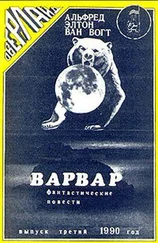Nothing in the way of poverty and distress can astonish him.
One should see the hotels they have there. Diogenes thought himself so clever because he lived in a tub.
All right! But he never dreamed of letting it to a family, or to some travelers from Smyrna, or of sharing it with friends.
Well! in a Hindu hotel you are given a room with exactly enough space for a pair of slippers. If a dog were put in there it would suffocate. But the Hindu does not suffocate. He manages with whatever volume of air he is given.
Comfort upsets him. It is inimical to him. If the people who conquered him had not been such a reserved people as the English, the Hindu would have made them ashamed of their comfort.
Nothing in the way of suffering either will astonish the Hindu.
Now a poor blind man in Europe arouses ‘noticeable’ compassion. In India, if he thinks he can count on his blindness to move people, just let him try. No, if, in addition to his blindness, his knees have been crushed, an arm cut off, or at least a hand, and let this be as bloody as possible, and then a leg missing and his nose eaten away, even that goes without attracting attention. A suggestion of St. Vitus dance in what is left, and now, perhaps, there may be some use in showing himself. It will be admitted that his situation is not all that could be desired, and that a little penny might give him pleasure. But one cannot be sure. These sights are so ordinary, so numerous. Their emaciation is sometimes such that one wonders whether it be that of a man or of a skeleton.
There is a beggar with no hands and paralyzed legs who goes in the morning from one end of the Chowringhee (the grand boulevard of Calcutta) to the other, pulling himself along on his knees with a sack tied by a rope to his loins dragging two yards behind him. You might think he made ‘big money.’ I had the low curiosity to follow him for half an hour. His winnings, in all were two ‘coppers’ (there are four coppers in an anna and sixteen annas in a rupee of seven francs). Some of them totter scarcely a yard in a morning, falling down and getting up again. In the same city live the rajahs, the richest people in the world with the American millionaires. No, no, each one his destiny. One adjusts oneself to it. When an egoist becomes a bigot, he becomes a hundred times more egotistical. 9
I was ushered one day into the office of a Hindu lawyer in Calcutta.
I have no particular statement to make regarding him. He is an eminent man and well known in the law courts.
I would like, however, to touch on the subject of his files. On some shelves bundles of dirty linen were to be seen. These were not bundles of dirty linen, but files, squeezed into old hand towels, from the holes of which protruded, here, the signature of the clerks, there, words of minor importance. Some of the papers were slipping out and waved gently in the draught.
Needless to say that, from the judicial point of view, I shall be most careful not to open my mouth.
As to the other points of view, I will confine myself, for the present, to some reservations.
I was able to see other houses that did not belong to lawyers. If only they had been empty! But this ugliness, this rococco!
For a marriage, they spend up to fifty thousand rupees (half a million francs). And it is hideous.
In India one can get used to eating nothing but rice, to not smoking any more, nor drinking alcohol nor wine, to eating very little.
But to be surrounded by ugliness — one can go no further in austerity. It is very harsh.
Why so much ugliness?
Here is a people three thousand years old, and the rich man still has the tastes of the parvenu.

A Western philosopher who was passing this way felt overwhelmed by a feeling of pantheism, due, he thought, to the heat and to the neighboring jungle, and so was enlightened as to the profound causes of Hindu religions and philosophies. It was inevitable, one could not be anything but a pantheist in this climate.
If that writer happened to go to the banks of the Maranon (Upper Amazon) and of the Napo, where it is very hot also, and where there is a real jungle, he will, no doubt, be surprised to find Indians who are light-hearted, lively, cool, precise, and not at all given to pantheism.
Besides, India is not such a hot country that you are obliged to eat under a shower bath there. There are four rather cold months. In winter, when you perform your ablutions in the Upper Ganges, you shiver. In Delhi everyone coughs. The head of Dupleix College in Chandernagor wears an overcoat.
As for the jungle, it is a luxury that the Hindus who are fathers of large families can no longer afford. They have reduced it to a bare minimum. They have put rice fields in its place.
The trees that one sees in the north are rare, isolated, tall, with immense and beautiful foliage in the shape of a parasol. They give the country a look of great peace and majesty.
It seems more likely to have been the famines (if the rains are late in the summer, famine is sure to come), the innumerable diseases and the snakes, rather than the severe heat, that have had an effect on the Hindu, not exactly making a pantheist of him, but making an impression on him such as the sailor might have at sea, and giving him a kind of defeatism.
Yet certain tribes, most of them much older than the Hindu, real natives such as the Santals, have none of the Hindu characteristics. Nature has influenced them in a quite different way.
Moreover, it is not the jungle that makes the tiger, but the tiger who chooses to go into the jungle. It also lives in the mountains, in the coldest weather.
All peoples seem to choose a certain type of country to settle in, though they may prosper in several.
The Portuguese in the plains (Portugal, Brazil), the Spanish on high plateaus (Mexico, Peru, Ecuador, Chile, Venezuela, etc.). The Arab is more like himself in the desert (Arabia, Egypt, etc.). It so happens that the cactus (on the plateaus and pampas of South America) is the tightest, the most unapproachable plant, just like the Indian of the same countries.
Most of the trees in Italy are taller than those in France. As soon as one reaches Turin the difference is striking. The leaves of the chestnut trees are heavier in Brussels, lighter in Paris — and as a rule, all the vegetation in the Paris region and Brussels shows a slight tendency of the same kind. Does that simply imply that the Belgian prefers to see good stout chestnut leaves to more delicate ones? and that he chose to live in Belgium for that reason?
Does it mean that it is the sight of the heavier vegetation that has rendered his mind… a little less nimble and a little more fleshy?
Does it follow that drinking the water from the same soil as the plants, surrounded by the same humidity, the same wind, the same tone, and in short, eating qualities of the products of the same soil, he has grown somewhat like them also?
No, one cannot say this, it is much more complicated.

India sings, do not forget that, India sings. Everywhere, from Ceylon to the Himalayas, they sing. Something intense and constant accompanies them, a song that does not ‘detach’ them.
Can one be entirely unhappy when one sings? No, there is a cold despair that does not exist here. A despair without hope of issue, and with nothing to look forward to, that is to be found nowhere but among ourselves, and of which the hero of Knut Hamsun’s Hunger would be a typical example.
The Asiatic is a born student. Bengal is swarming with students, with matriculated students. The Chinese knows nothing but examinations . Examinations make the mandarin of every class.
Читать дальше













